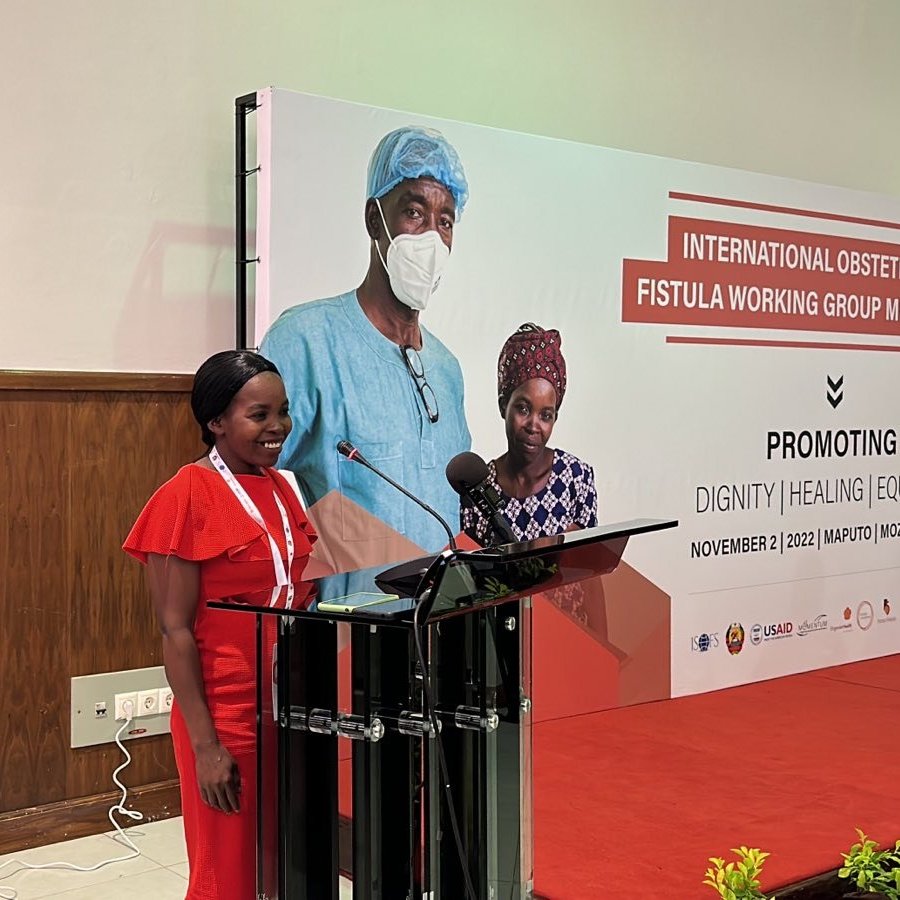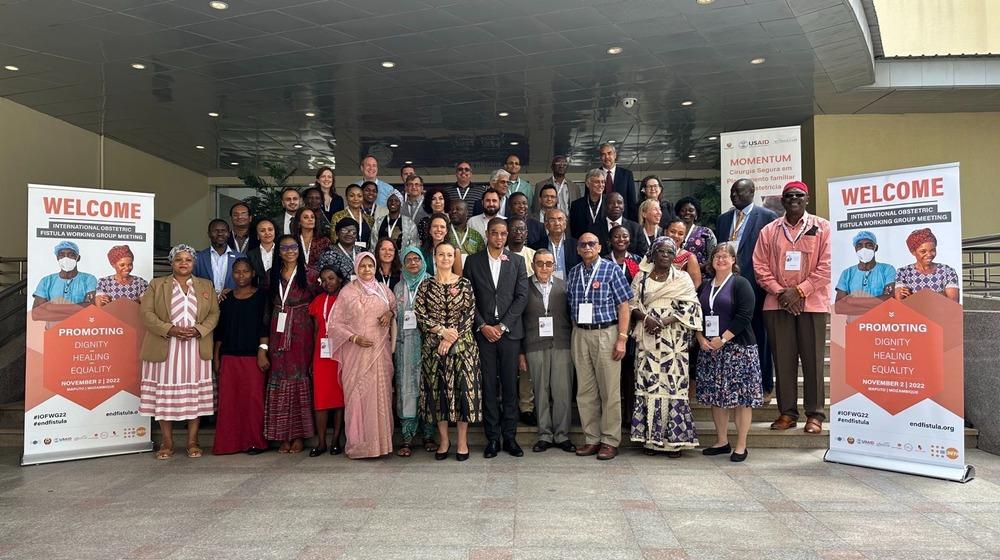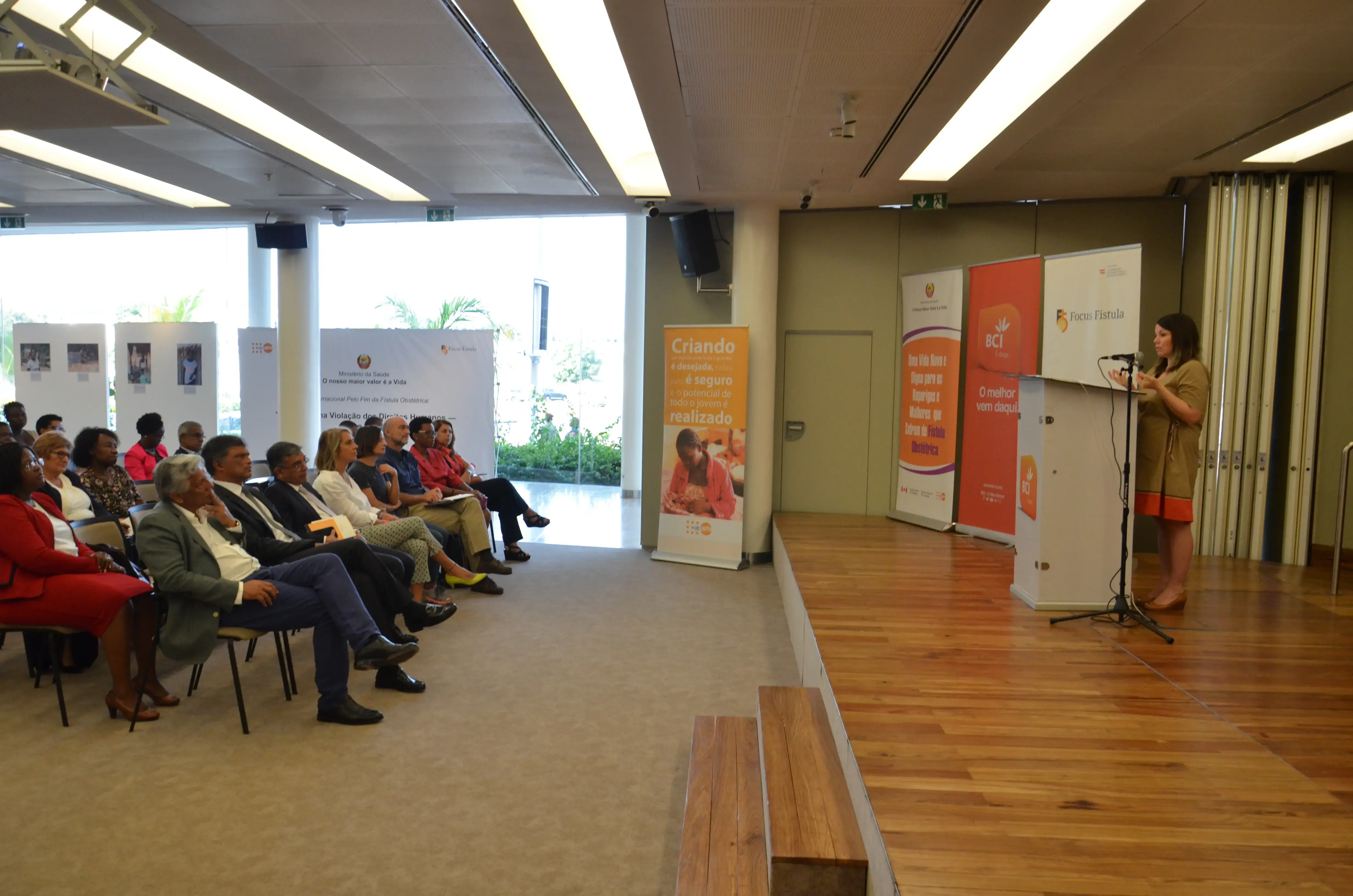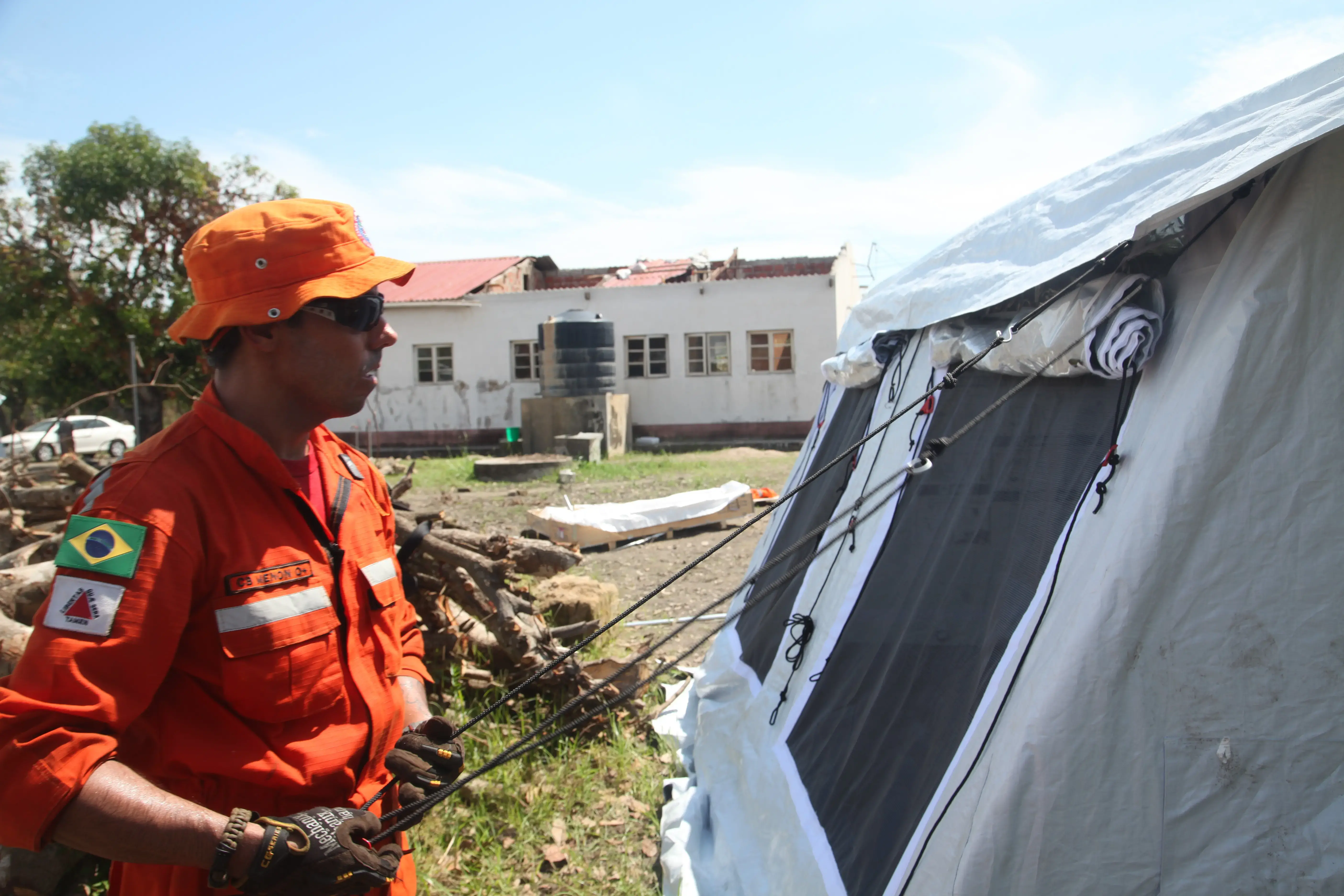“My dream in life is to be a nurse or a doctor to help other women who are suffering from this disease: obstetric fistula,” shares obstetric fistula survivor turned advocate, from Mozambique, Beatriz Sebastião, during her remarks at the 8th International Conference of Surgeons for Obstetric Fistula in Maputo, Mozambique.
Hosted by the Government of Mozambique, under the Ministry of Health, UNFPA Mozambique took a leading partner role to convene medical experts, researchers, and advocates from around the world, among others, for a week-long conference in Mozambique: a first for the region and a lusophone country.
With over 300 members, ISOFS - the International Society of Obstetric Fistula Surgeon - is the leading international professional body working on the prevention of obstetric fistula, treatment and rehabilitation of women with fistula. UNFPA partners with ISOFS to pursue a common goal at the heart of UNFPA’s mandate: eliminating obstetric fistula.
Obstetric fistula is an abnormal hole between the birth canal and bladder or rectum, caused by prolonged labour without timely access to emergency obstetric and newborn care. The condition is not only a source of stigma and emotional suffering for its survivors, but it is also associated with devastating lifelong morbidity, with severe medical, social, psychological and economic consequences if left untreated.
It is estimated that 500,000 women live with obstetric fistula globally; in Mozambique, there are an estimated 2,500 new cases every year.
To address this pressing human rights issue, ISOFS organized its biannual international conference, convening the international fistula community in Maputo to discuss latest scientific studies and share best practices on innovative and successful programs for the elimination of obstetric fistula. The participants shared a collective commitment to restore the dignity of women impacted by obstetric fistula, seeking to combine efforts across sectors to effectively prevent and mitigate the condition.

The UNFPA-led International Obstetric Fistula Working group meeting also took place during the ISOFS Conference. The one-day meeting brought together a core group of partners in the global Campaign to End Fistula and professionals working on fistula and maternal health, including government representatives, academia, and private sector to brainstorm on a framework for the development of a global roadmap to end fistula by 2030 as called for in the 2020 UN resolution on Intensification of efforts to End Obstetric Fistula.
The ISOFS Conference was preceded by live fistula surgeries, whereby five women and girls received life-changing surgeries. The conference also spotlighted the voices of obstetric fistula survivors and advocates, featuring speakers like Beatriz, a survivor who shared the transformative impact of fistula treatment and surgery on her life, and Joana, who shared her story to recovery following a complex fistula condition during a plenary session.
Addressing attendees, UNFPA Resident Representative for Mozambique, Bérangère Boëll, emphasized the agency’s commitment to the prevention and elimination of obstetric fistula, noting that the condition is a violation of human rights, which requires holistic, rights-based approaches alongside strategic partnerships and funding investment from donors worldwide.
Since the start of the UNFPA-led Campaign to End Fistula, UNFPA has supported over 129,000 fistula repairs worldwide. In Mozambique, through donors such as the Government of Canada, UNFPA has supported more than 3,000 women to receive repair surgery, while helping to train health providers, run community awareness campaigns, and support survivors to reintegrate into the workforce.
UNFPA commends the Government of Mozambique for reinforcing its dedicated efforts to ensure a healthy and dignified life for the most vulnerable women and girls by hosting the ISOFS conference.
UNFPA remains committed to working alongside Governments and partners to accelerate efforts to End Fistula by 2030 and applauds the tireless work of surgeons, activists, health professionals and others who are leading these efforts worldwide.




